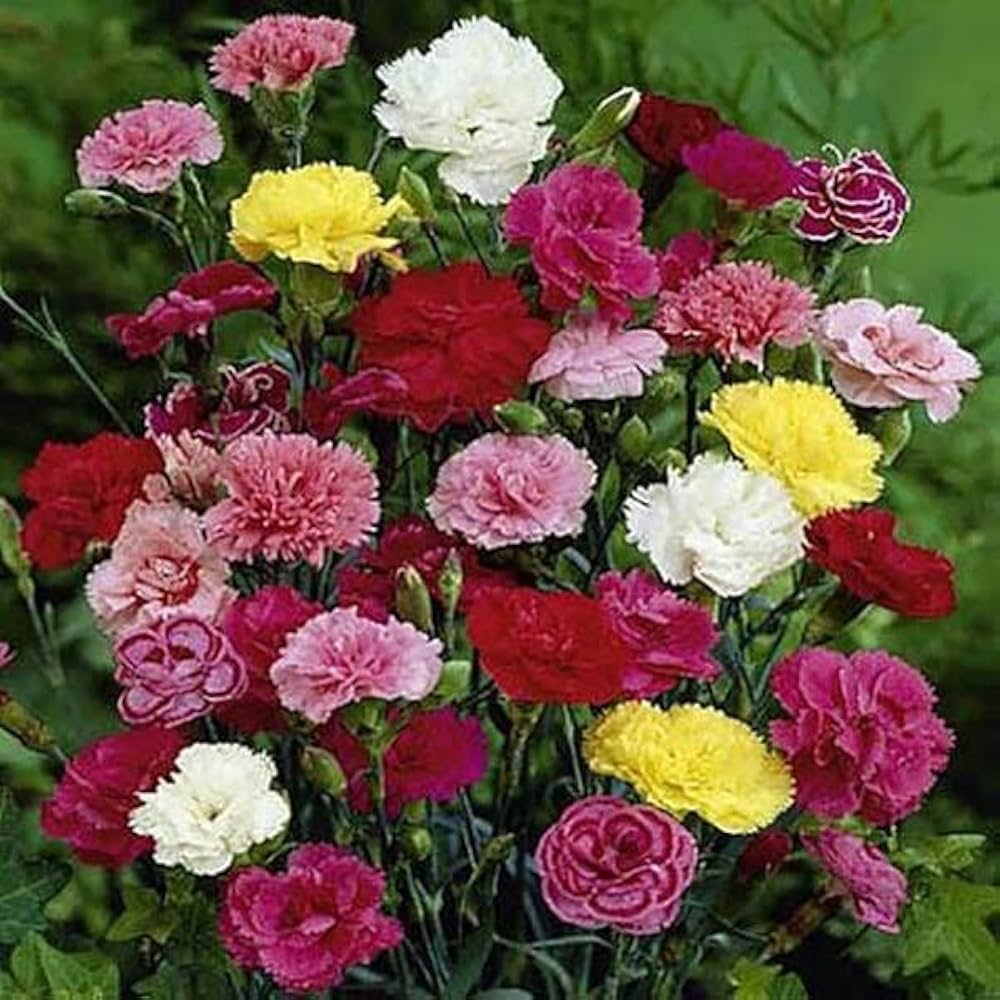Carnation Dianthus Caryophyllus Flower Seeds for Planting in Home Garden and Balcony Planters
Couldn't load pickup availability
Description
Carnation Seeds
Characteristics and Uses of Carnation Plants
Carnations, scientifically known as Dianthus caryophyllus, are beloved for their ruffled petals and delightful fragrance. These non-GMO seeds produce vibrant flowers in a variety of colors, including pink, red, white, and yellow, making them a popular choice for gardens and floral arrangements. Known for their long-lasting blooms, carnations are often used in bouquets, centerpieces, and as ornamental plants in borders and beds, adding elegance and charm to any garden setting.
Growing Conditions for Carnation Plants
- Light Requirements: Thrives in full sun, requiring at least 6-8 hours of direct sunlight each day.
- Soil Type: Prefers well-draining, sandy or loamy soil enriched with organic matter for optimal growth.
- Temperature: Best suited for moderate temperatures, ideally between 60°F and 70°F for germination and growth.
Planting Tips for Carnation
- Timing: Start seeds indoors 8-weeks before the last frost date or sow directly outdoors after the danger of frost has passed.
- Depth: Plant seeds about 1/inch deep in the soil, ensuring they are lightly covered.
- Spacing: Space plants 12-18 inches apart to allow for proper air circulation and growth.
Watering Instructions and Tips
- Watering Frequency: Water regularly, providing about 1 inch of water per week, especially during dry spells.
- Mulching: Apply a layer of mulch around the base to help retain moisture and suppress weeds.
- Signs of Underwatering: Look for wilting leaves or dry soil as indicators that your plants need more water.
Growing Zones
Carnation plants are well-suited for USDA zones 3-9 and can adapt to various global climates, making them a versatile choice for gardeners looking to cultivate beautiful and fragrant flowers.
Key Benefits & Uses
- Ornamental Appeal: Adds beauty and elegance to gardens with their vibrant colors and delightful fragrance.
- Long-Lasting Blooms: Known for their durability, making them ideal for cut flowers and arrangements.
- Health Benefits: Rich in antioxidants, carnations have been used in traditional medicine for their potential health benefits.
Best Uses in the Garden & Landscape
- Flower Beds: Perfect for creating colorful flower beds that attract pollinators.
- Container Gardening: Suitable for growing in pots or containers, making them ideal for patios and balconies.
- Cut Flower Gardens: A popular choice for cut flower gardens, providing beautiful blooms for arrangements.
Conclusion
Carnation seeds from bijaseeds are an excellent choice for gardeners looking to cultivate beautiful and fragrant flowers. With their stunning appearance and numerous benefits, these non-GMO seeds are perfect for enhancing any outdoor space. bijaseeds is a big, trusted name in the seed world, offering a wide range of high-quality, non-GMO varieties to gardeners everywhere.
FAQ
How do I grow carnations from seeds?
To grow carnations from seeds, start by planting them in well-draining soil in a sunny location. Water regularly, allowing the soil to dry slightly between waterings for optimal growth.
When is the best time to plant carnation seeds?
The best time to plant carnation seeds is in early spring, after the last frost. If starting indoors, aim for 8-weeks before the last frost date to ensure healthy seedlings.
Are carnations difficult to grow?
Carnations are relatively easy to grow, making them suitable for gardeners of all skill levels. With proper care, including adequate sunlight, watering, and spacing, they can thrive and produce a bountiful display of flowers.





